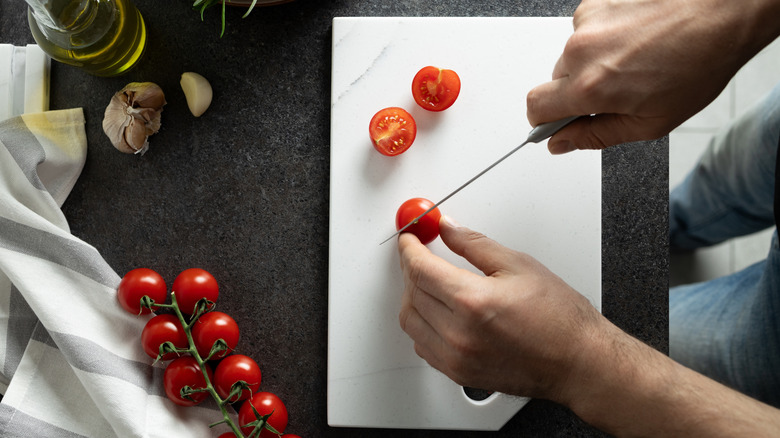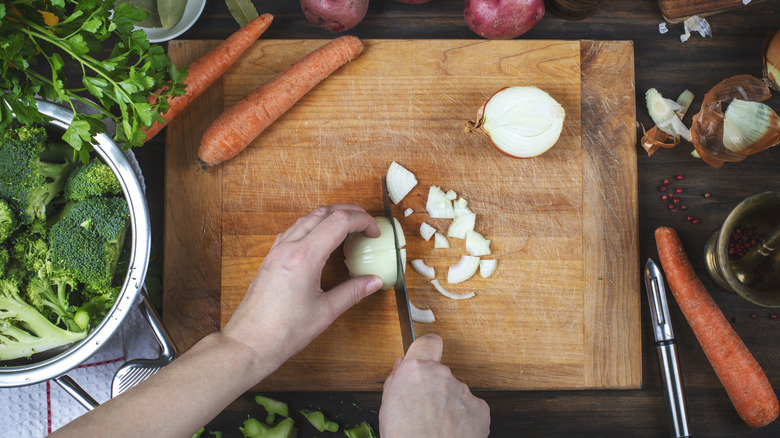The Worst Cutting Board Materials Will Ruin Your Kitchen Knives
We may receive a commission on purchases made from links.
Cutting boards are essential for keeping your countertops protected from slicing and dicing, and lots of professional chefs swear by them. Unfortunately, not all cutting boards are made equal, and some are actually damaging your knives.
It all comes down to the material; boards made from glass, ceramic, granite, or marble are all remarkably hard and the worst options for your knives. They're certainly harder than the steel your knives are made of, meaning that when you cut on them, they can cause dulling and damage to the blade. This doesn't just apply to cutting boards but anything you'd cut on, including ceramic plates or fancy glass serving trays. To keep your knives in the best shape, the material you're cutting on has to be softer than steel. While cutting boards made from these hard materials may look beautiful in your kitchen, they're definitely not doing you any favors when you use them.
With these materials off the table, you might be tempted to invest in a plastic cutting board, and that's not an all-around bad idea. Plastic cutting boards are softer than steel and won't dull or damage your knives when you use them. Unfortunately, plastic cutting boards can be detrimental for another reason: microplastics. According to a recent study published in the Environmental Science and Technology journal, plastic cutting boards can significantly increase the amount of microplastics in food. Although microplastics are basically everywhere at this point, there's no reason to consume more of them if you can help it.
To benefit your knives (and your health) use wooden cutting boards instead
To avoid damaging your knives — and ingesting microplastics — wooden cutting boards are a must-have. However, not all types of wooden boards are worth considering, as some are too hard or soft. Like Goldilocks, you want one that's just right.
Maple options, like this John Boos cutting board, are some of the best because maple is a fine-grained wood, meaning it has smaller pores that trap bacteria, which eventually die off in the nooks. Walnut, birch, and acacia wood are also recommended for the same reason. In contrast, softer types of wood like oak have larger pores where bacteria can seep into and thrive. Additionally, while bamboo cutting boards are often seen as an eco-friendly option, they are usually too hard on knives, especially along the nodes, the dark lines where segments of bamboo meet.
Although wooden cutting boards can't be run through the dishwasher to disinfect, that doesn't make them unsanitary compared to a plastic alternative. While it will take a bit more effort, cleaning a wooden cutting board is very straightforward and, when done regularly, will keep it sanitary.

